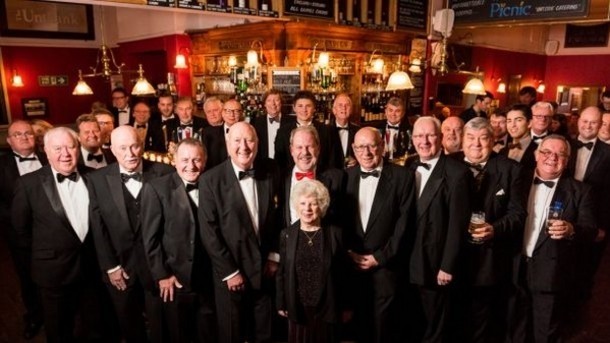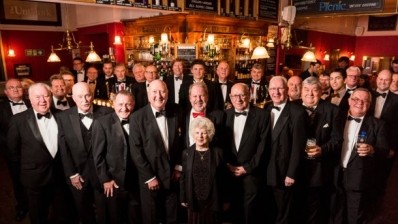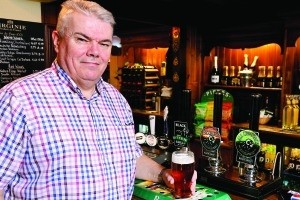LVAs
Focus: The demise of the once-mighty LVAs

The Norfolk and Norwich LVA was once able to boast that it was the biggest and most active in the country. At its peak, it had a membership close to 1,000, attracting similar numbers to its annual banquet.
Forty years ago it was far from alone. In 1978, the National Union of Licensed Victuallers reported that no fewer than 479 local associations were affiliated, representing about 30,000 members.
They were a vital part of the pub trade, bringing licensees together to discuss shared concerns, giving them a united voice and forming an effective pressure group.
Supported by drinks companies and other suppliers, they raised countless thousands of pounds for charities, mainly the licensed victuallers schools and homes, rallying at banquets and balls where the 'ladies auxiliary' reigned in their unfeasibly large hats.
Champions
"We were the champions of licensees, we fought battles with brewers and we were always on the end of the telephone if members needed help or guidance," says former Norwich and Norfolk LVA chairman Mike Lorenz. "But five or six years ago, membership started falling away dramatically and events were poorly attended. Today, organisations like the BII (British Institute of Innkeeping) can offer more benefits. LVAs are not needed."
There is evidence for that harsh assessment. Norwich and Norfolk has not been the only LVA to fall in recent years.
It would be easy to conclude there's no place in the modern pub industry for an organisation that has its roots in the mid-19th century, when publicans needed to combine together to do battle against the proliferation of front-room pubs allowed by the 1830 Beer Act and the rise of temperance.
The 1989 Beer Orders and the new pubcos and agreements that came in its wake did a lot of the damage, destabilising the trade and replacing long-serving stalwarts with a more mobile, entrepreneurial licensee, while the 2003 Licensing Act removed the statutory afternoon break when LVA members generally met over curly sandwiches, vol-au-vents and beer.
The most recent recession seems to have been the final straw for many, while others survive as 'zombie' LVAs with few members and no activity.
Turnover
In the years 2009 and 2010, Midlands LVA, Nuneaton & District LVA and West Cornwall LVA were among those closing. "It sort of died," says Mike Mildren, an officer for West Cornwall. "The trade has changed over the years and membership dwindled – they didn't like paying £150 a year so we dropped it down but we still we still couldn't get people to join and ended up with two members.
"We used to get 25 to meetings and we had a lot of sway with the breweries, but once we no longer had the clout there wasn't a lot of point in carrying on.”
LTC steps in
One beneficiary of the demise of the LVAs has been the Licensed Trade Charity (LTC).
As groups have wound up, they have handed their remaining funds to the LTC. West Cornwall donated shares worth £30,000, Midlands almost £37,000 in cash, and with £13,000 from Norwich and Norfolk, the charity set up a special bursary for local licensees and their families who need help.
Steve Seager, secretary of Chelmsford LVA, is keeping the organisation alive single-handed.
"We've not met for three years. There's a big turnover in licensees these days and people just can't afford the time and the money. I was disappointed when the National LVA wound up, too. We lost power.
"One of our major assets was that we'd put together block applications for licence extensions for special occasions and, when the licensing laws changed, we helped a lot of publicans through the changeover. But when it settled down we weren't needed any more and we became more of a social organisation.
"Now all the key people have either retired or passed away and no one is coming through to replace them. There's no interest at all, but I'm keeping it going in case something comes along."
Green shoots
Swansea LVA, formed in 1852 to resist temperance campaigners, hosted its 150th annual banquet before Christmas – but that's about all there is holding it together.
"When I joined 38 years ago, we had 144 members, now we have four," said secretary Grey Phillips. "We meet every month and have a little discussion but we can't do anything for the licensee now. At lease renewals nobody wants us these days, they can get a better service from the Federation of Small Businesses.
"There's still an LVA Wales and we all meet for a chat, and there's still money in the bank, but the last time we really represented the trade was over the smoking ban – which was a setback in itself.
"We still get 120 people to the annual banquet and it's a really good event, but the days of being a political organisation are gone."
Remarkably, though, among the rubble, green shoots are beginning to appear.
Northallerton LVA in Yorkshire has actually increased its membership – to a modest 20, "nothing like as big as it used to be," admits secretary David Hawksworth. "But we're still going strong. Since the recession, it's been a question for many of whether they pay for their LVA subscription or pay for the veg, and they've chosen the veg."
Turning it around, he explains, has been a matter of "getting close to licensees".
"We're proactive but that doesn't mean formal bureaucratic meetings every month. Instead, I go around the pubs and speak to licensees. I talk to them about trade, the business. Everyone's trying to make a living and it's getting harder. They all have my phone number and know the LVA will support them.
"The pubcos are behind us, too, I'm pleased to say. Enterprise Inns, for instance, will pay a new licensee's first year's subscription."
One voice
At Gloucester LVA, it's been two relatively young licensees who have brought the organisation back from the dead. Three years ago, it disbanded when its chairman resigned but a month later, Justin Hudson stepped in and along with vice chairman Chris Atine relaunched it.
It now has 46 licensees on its email list.
"I've attended LVA meetings for almost 20 years," says Hudson. "There was apathy. We took a wrong direction. But we quickly brought it back because we needed to have a trade body, working together to make things happen.
"Now we're on the increase and we've gone from five or six chairs round a table to needing proper venues for our meetings.
"We’re supported by Molson Coors, which provides money and facilitates big events. We don't ask members to pay anything and we'll need to get to grips with that. But the main thing is we're speaking with one voice, giving one message to the powers that be."
It was important that, unlike a Pubwatch group, the LVA reconvened "with a strong emphasis on being an independent trade body," adds Atine. "We ask non-licensees to leave the meeting so we can have a frank discussion about the things that get our goat and take a view.
"We're not just a talking shop. Members have seen a benefit. We can influence policy."
The LVA has been central to establishing a City Safe scheme and during last summer's Rugby World Cup, when overzealous marshalling to steer people towards the city's Fan Zone was diverting trade from a number of independent pubs, the LVA discussed the problem, made representations to the local council and sponsors, and got results.
'Lonely'
What these positive experiences show is that the need for solidarity among licensees has not disappeared.
As operations director of the Federation of Licensed Victuallers Associations, Martin Caffrey, works for individual members rather than LVAs, but he believes there's still a need for mutual support at a local level.
"You can be in a lonely place as a licensee. A friendly voice at the end of the telephone is very useful."






